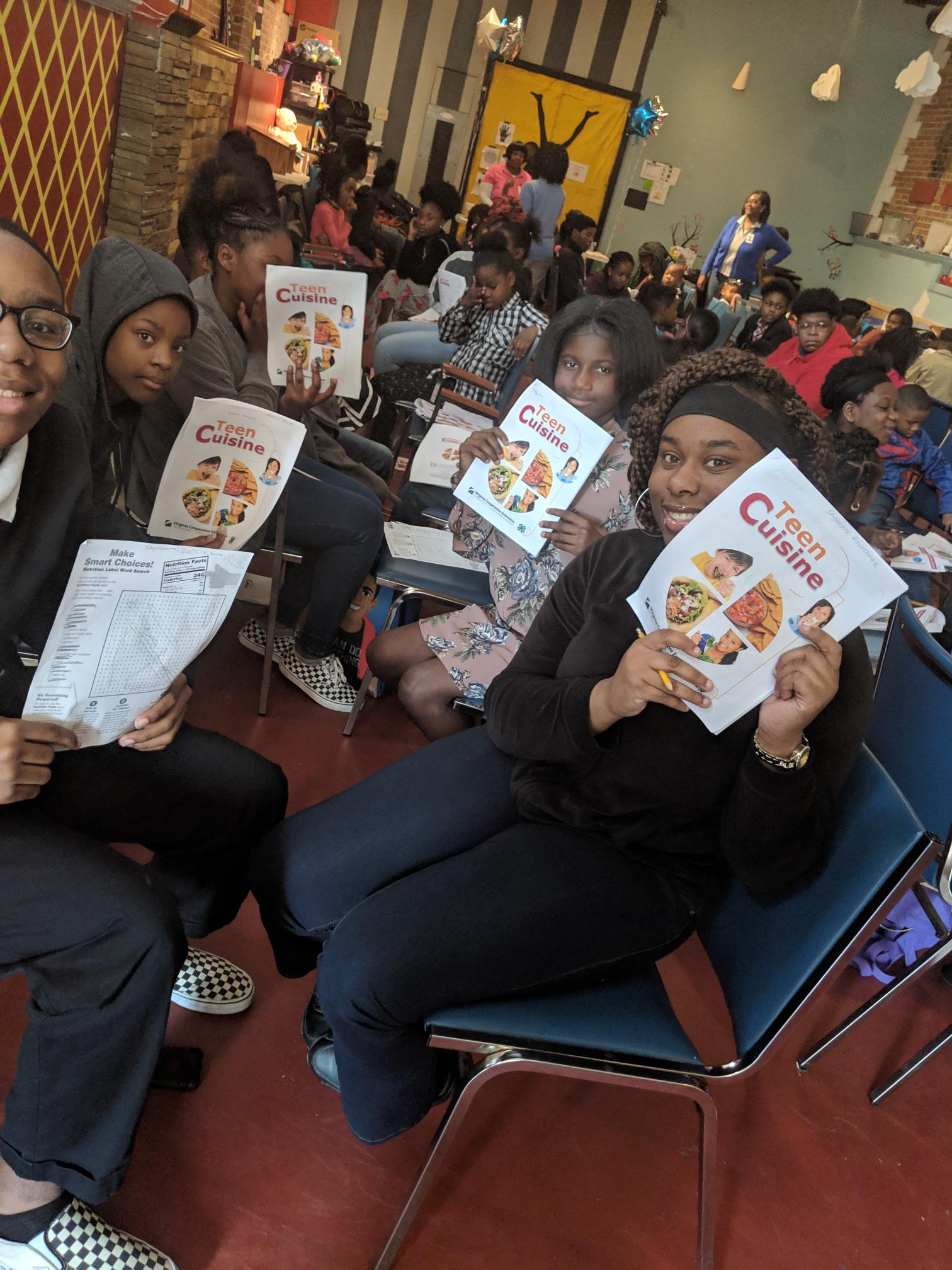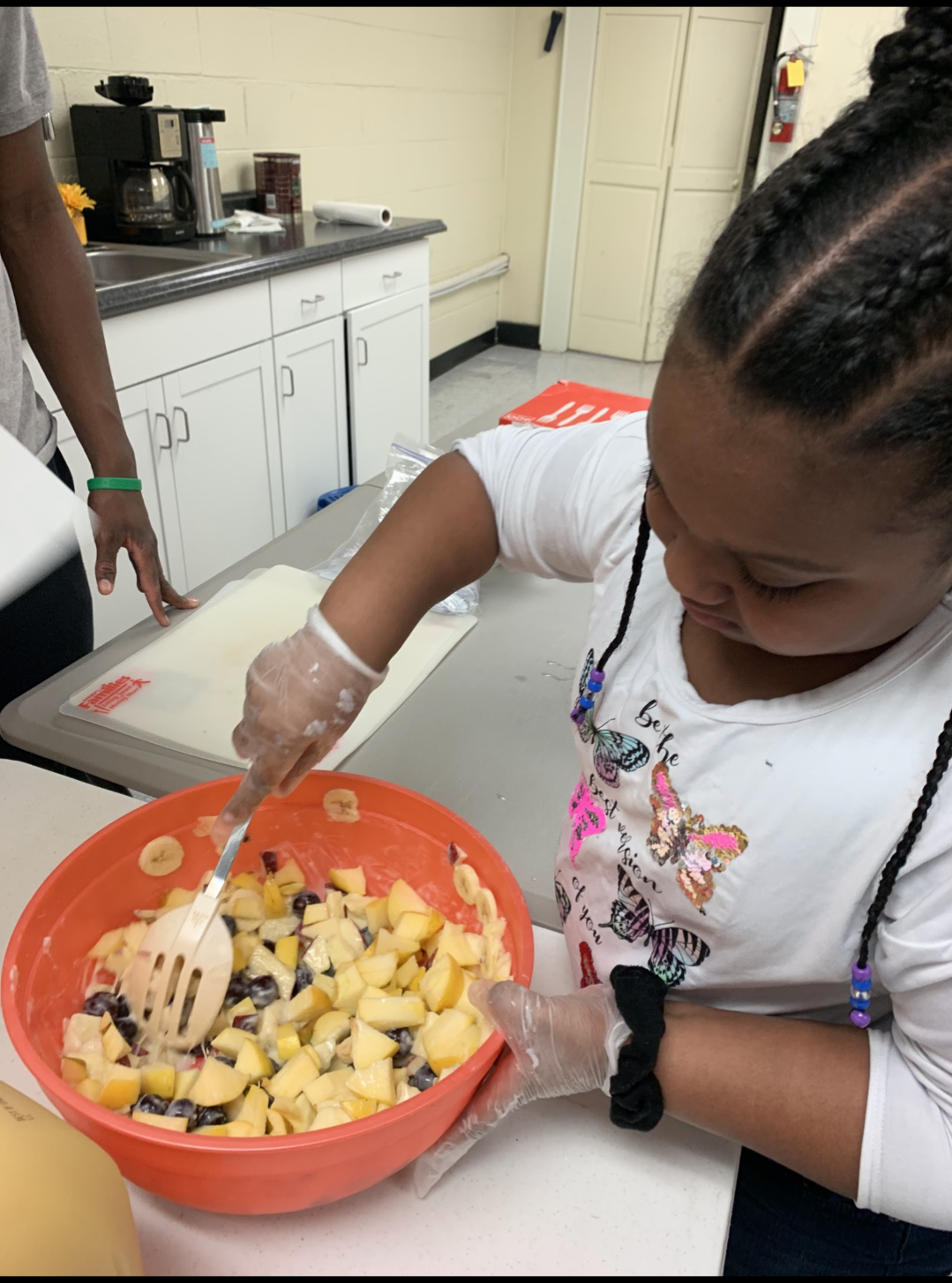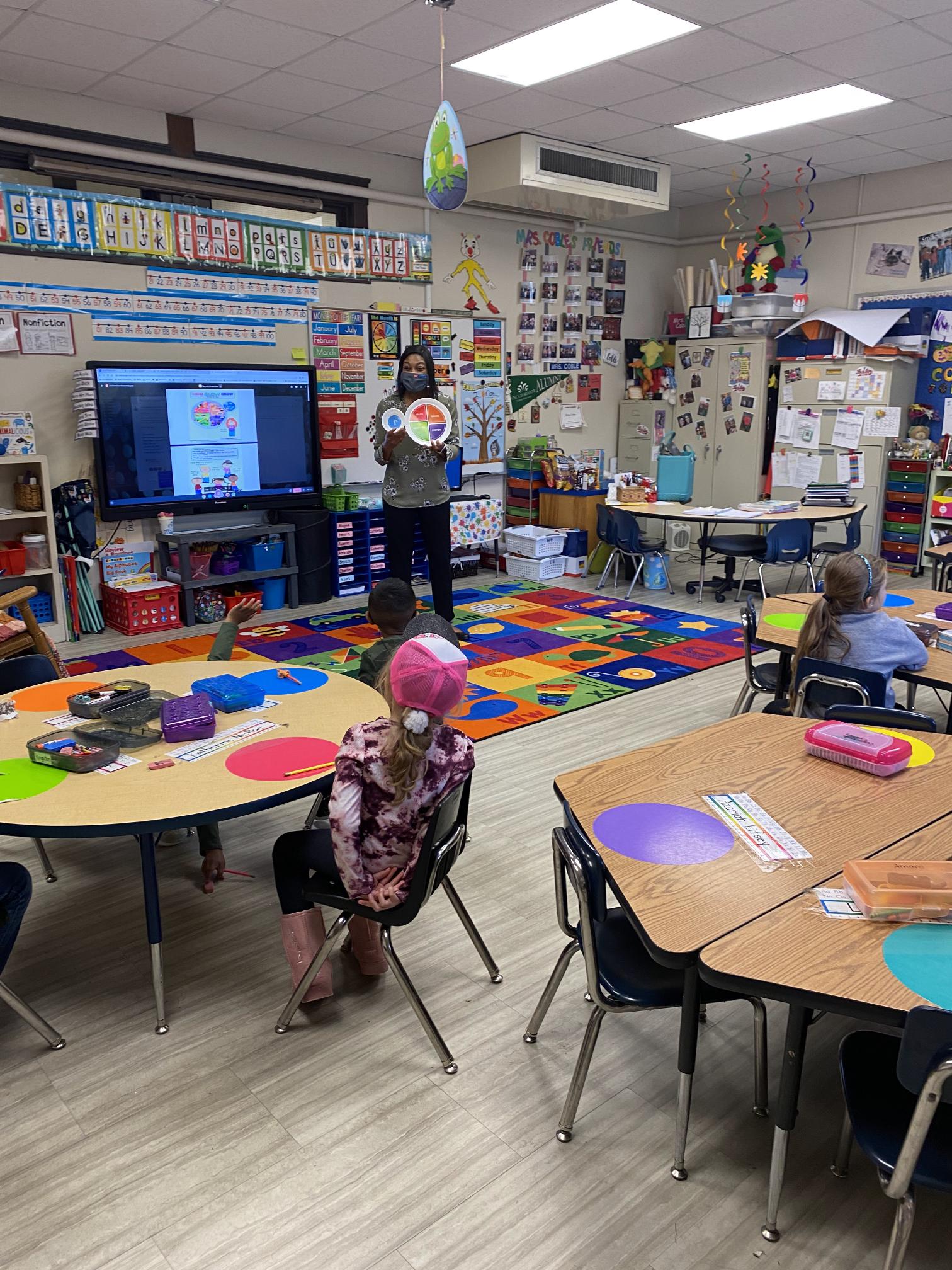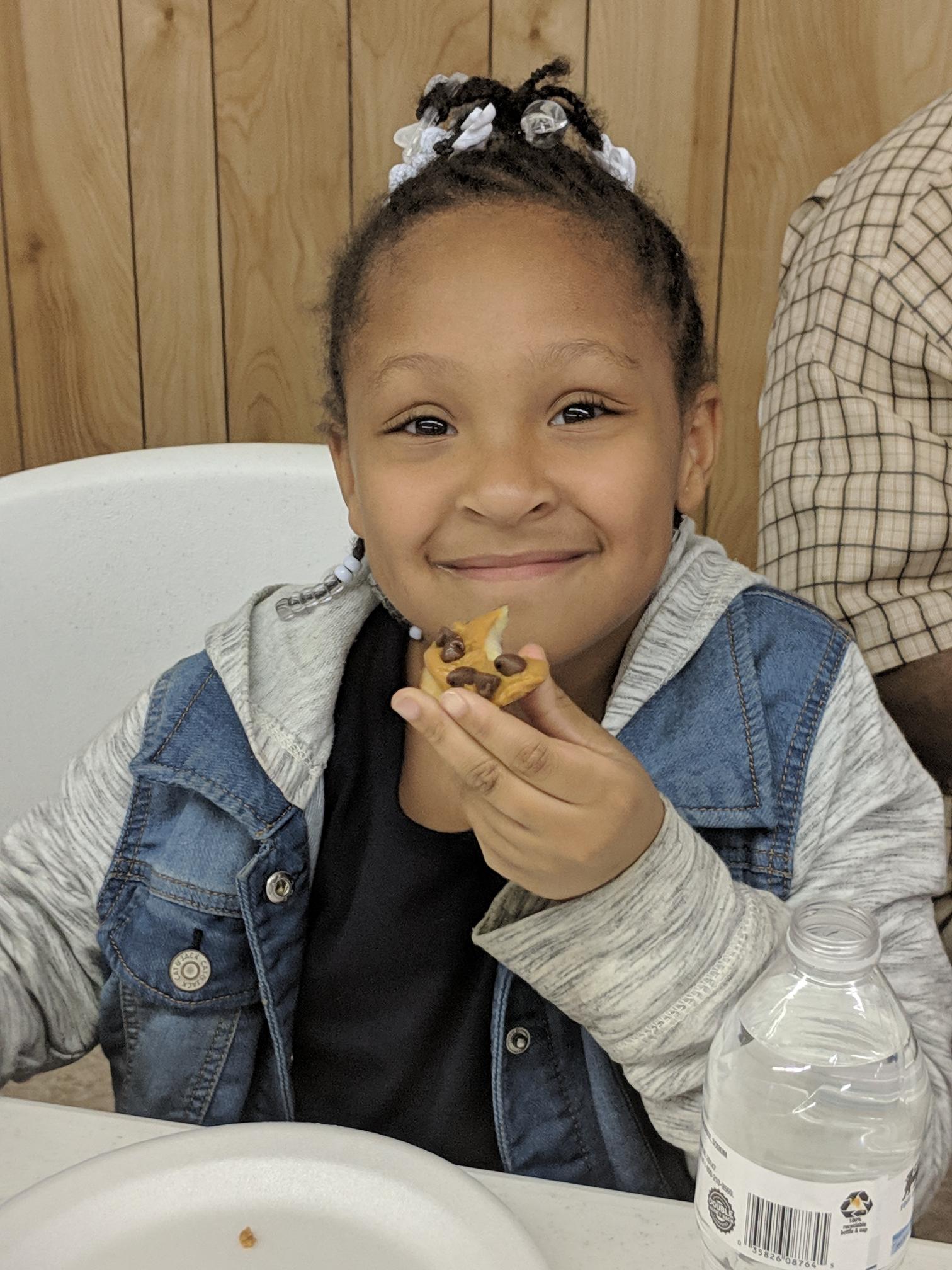Using Local Food to Promote Food Security: A Conversation with Shewana Hairston McSwain
go.ncsu.edu/readext?845335
en Español / em Português
El inglés es el idioma de control de esta página. En la medida en que haya algún conflicto entre la traducción al inglés y la traducción, el inglés prevalece.
Al hacer clic en el enlace de traducción se activa un servicio de traducción gratuito para convertir la página al español. Al igual que con cualquier traducción por Internet, la conversión no es sensible al contexto y puede que no traduzca el texto en su significado original. NC State Extension no garantiza la exactitud del texto traducido. Por favor, tenga en cuenta que algunas aplicaciones y/o servicios pueden no funcionar como se espera cuando se traducen.
Português
Inglês é o idioma de controle desta página. Na medida que haja algum conflito entre o texto original em Inglês e a tradução, o Inglês prevalece.
Ao clicar no link de tradução, um serviço gratuito de tradução será ativado para converter a página para o Português. Como em qualquer tradução pela internet, a conversão não é sensivel ao contexto e pode não ocorrer a tradução para o significado orginal. O serviço de Extensão da Carolina do Norte (NC State Extension) não garante a exatidão do texto traduzido. Por favor, observe que algumas funções ou serviços podem não funcionar como esperado após a tradução.
English
English is the controlling language of this page. To the extent there is any conflict between the English text and the translation, English controls.
Clicking on the translation link activates a free translation service to convert the page to Spanish. As with any Internet translation, the conversion is not context-sensitive and may not translate the text to its original meaning. NC State Extension does not guarantee the accuracy of the translated text. Please note that some applications and/or services may not function as expected when translated.
Collapse ▲ Shewana Hairston McSwain is the Supplemental Nutrition Assistance Program Education (SNAP-ED) Coordinator and the Interim Expanded Food and Nutrition Education Program (EFNEP) Coordinator at North Carolina A&T State University. In these roles, Shewana assures program policies and guidelines are followed, coordinates program planning, connects the program to current research, oversees curriculum and staff development, communicates program value and successes, secures program resources, and practices good stewardship of federally allocated program funds. She also works with other states, territories, regional, and local personnel to train EFNEP and SNAP-ED Educators. Her favorite part of this position is seeing and hearing the success stories from families that complete their programs.
Shewana Hairston McSwain is the Supplemental Nutrition Assistance Program Education (SNAP-ED) Coordinator and the Interim Expanded Food and Nutrition Education Program (EFNEP) Coordinator at North Carolina A&T State University. In these roles, Shewana assures program policies and guidelines are followed, coordinates program planning, connects the program to current research, oversees curriculum and staff development, communicates program value and successes, secures program resources, and practices good stewardship of federally allocated program funds. She also works with other states, territories, regional, and local personnel to train EFNEP and SNAP-ED Educators. Her favorite part of this position is seeing and hearing the success stories from families that complete their programs.
Shewana’s Local Food Landscape
Considering Shewana’s position in Extension, she might have a different perspective on local foods than others. “I look at local food as another way to make North Carolina families more food secure,” she shared. In 2021, over 1.5 million North Carolina households did not have enough to eat. 1 in 5 children in North Carolina face hunger on a regular basis, and due to structural racism, Black and Latinx households are at an increased risk of facing food insecurity (Feeding America’s Map the Meal Gap). “I ask the questions, what tools do farmers need to accept SNAP benefits or get reimbursed for CSA boxes? Can we work with farmers to set up a gleaning program? Can we set up farmers with clinics so fruits and vegetable boxes can be prescribed? How can I work with community partners to create PSEs (Policy, Systems, and Environmental Changes) to change access to local foods to decrease families’ food insecurity?” said Shewana. She continued, “Change takes time, and there are some challenges. However, I work with community partners to provide local food providers with information and resources to overcome those challenges and provide limited-resource families with programs to help them grow their own produce if they don’t have access to local farmers or farmer markets.”
Shewana’s Primary Projects & Programs
The EFNEP and SNAP-ED Educators that Shewana oversees provide nutritional programs to limited-resource families. Some of these nutritional programs include Kids in the Kitchen; Families Eating Smart and Moving More; Table for Two; Faithful Families; Speedway to Healthy; Go, Grow, Glow; Teen Cuisine; and LIFT. Teams at NC A&T developed Table for Two and Speedway to Healthy while the others were created at NC State. All of the programs are open to both NC State and NC A&T employees.
 Students participating in the Teen Cuisine program. |
 Child preparing a fruit salad in a cooking class. |
Every month, Shewana and her team also hold a virtual cooking class where families learn how to cook healthy, budget-friendly meals with a chef. For this class and other cooking demonstrations, the EFNEP and SNAP-ED Educators work with ANR Agents or local farmers to provide in-season local foods. One of Shewana’s favorite success stories involves one of these cooking classes that happened last June in Vance and Warren counties. Nitasha Kearney, Vance and Warren Counties EFNEP Educator, was an organizer of the summer camp offered to third, fourth and fifth graders. She and other local 4-H Agents partnered to bring live virtual cooking classes to kids at home. The children received recipes and a meal kit each week that helped them learn about new foods and improve their culinary skills. Not only did the camp aim to engage kids and their families in gaining cooking skills, but also to promote good nutrition and exercise in response to obesity levels in the area and poor eating habits. Overall, 92% of the camp participants said they improved their nutrition habits and 76% improved their food safety practices. More than half said they increased their fruit and vegetable consumption and about half reported increasing their daily physical activity.
 SNAP-ED Educator, Chelsea Barber, presenting My Plate nutrition education to young students. |
 Child enjoying her yummy creation from a cooking class. |
Shewana’s Final Thoughts
Shewana has advice for those working outside and within Extension. For those that are not yet connected with Extension, Shewana suggests reaching out to your local office. Agents are excited to learn about possible partnership opportunities. “For those working within Extension, continue to work as a team! Use all the programs and resources that are available. Don’t forget about the EFNEP and SNAP-ED programs. They reach the limited resource families that need to be connected with fresh and local produce,” shared Shewana.
Shewana is hopeful that the future of local foods includes easier access for everyone and that it is used as one of the tools to reduce food deserts and food insecurities. Her favorite place to purchase local food is at the Piedmont Triad Farmers Market in Colfax. Her favorite recipe using mostly local foods is Arugula and Beet Salad. Find the recipe below and make yourself a bowl at home!
Arugula and Beet Salad
4 beets
4 carrots
2 cloves garlic
1 lemon, zested and juiced
2 tablespoons onion, finely chopped
½ cups water
1 tablespoon olive oil
1 tablespoon butter
salt (to taste)
black pepper (to taste)
4 cups arugula
Directions
- Wash and dry produce. Heat a small pot of salted water to boiling on high. While heating, peel beets. Cut in half then slice into half inch pieces. Add to the boiling water and cook for 18 minutes. Peel carrots, half lengthwise, cut into 2 inch long pieces on an angle, set aside. Peel and mince garlic, set aside. Zest lemon and set aside 2 tsp.
- Juice the lemon and put juice in a bowl with the chopped onion. Once beets are cooked and drained, add them to the lemon juice mixture and toss. Season with salt and pepper and marinate for at least 5 minutes.
- While beets are cooking, heat oil in a medium pan. Add the carrots and cook, stirring frequently 4-6 minutes until lightly browned. Add ¼ c water, season with salt and pepper, and keep stirring until carrots soften and water cooks out. Add butter and garlic, and allow garlic to cook. Add lemon zest, marinated beets including the marinade liquid, and cook a few more minutes. Remove from heat, toss with fresh arugula, and serve right away.


